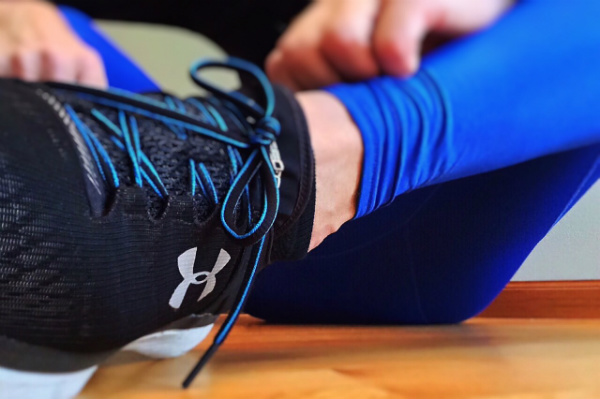It doesn’t matter if you’re a triathlete, a casual swimmer, or a morning dog walker. Increased activity levels will require more nutrients in the body to repair and provide energy to our muscular system.
So, to answer your question, “Does Exercise Reduce Iron Levels?” Yes it does, and here’s why!
A number of factors will increase the rate at which we need to replenish our iron stores. Here are several ways exercise reduces iron levels:
Table of Contents
How Exercise Reduces Iron Levels
Increased metabolism
The more we move, the more we sweat, and the harder our hearts have to work in order to pump oxygen around our bodies – will trigger the need for additional vitamins, minerals, and yes you guessed it, iron.
While a lot of emphases is put on macronutrients – micronutrients come in the last place in many people’s sports nutrition protocol. It’s the micronutrients (and elements such as iron) that help to transport ‘macro’ nutrients around the body.
This is because iron works to transport oxygen around the body in our blood, which in turn carries nutrients into the muscles. Such as nitric oxide, amino acids such a leucine, and carbohydrates in the form of glucose.
Without enough iron, we simply wouldn’t be able to exercise to our full capacity. In some cases, iron deficiency can cause anaemia, which can result in fatigue, tiredness, and confusion.
Foot strike hemolysis
Foot strike hemolysis can cause us to lose precious red blood cells, which help to carry oxygen around the body. This is especially important during exercise.
When the foot hits the ground, our blood cells literally break in the souls of our feet. The heavier the foot strike, the more damage we’ll do to our blood cells. (01)
Therefore, while this article is based on iron losses from exercise, it’s worth mentioning that by increasing your running ergonomics to lessen the damage done by a heavy foot strike will result in less iron loss.
So, if you’re a runner, chances are you may need more iron. As running can directly diminish haemoglobin levels, which is the main transporter of oxygen from the lungs throughout the body.
For a closer look into Iron, you can: Read My In-Depth Article on Iron Here.
Oxidative stress
Both physically and mentally induced oxidative stress can lead to an accelerated loss of nutrients in the body. For example, minerals such as magnesium are quickly depleted when stress increased.
Stress, if not mitigated, can, and will cause the body to break down – allowing for free radicals to do their damage.
By maintaining a positive balance of iron stores in the body, we can assist the body in its defensive mechanisms, which not only fight off illnesses, but also, repair the body on a cellular level after exercise.
Chances are, if you’re low in iron, then you may be low in other nutritional elements. As when one falls, the rest of the micronutrients are used to compensate in one way or another – putting additional strain on the body.

How Low Iron Can Cause Imbalances
If you are low in B vitamins for example, this can also cause anaemia (not only caused by low iron levels). B vitamins help the body to absorb the foods we eat, turning them into usable energy. (02)
The point I am making here in reference to B vitamins, is that when our body is not supplied with adequate iron we’ll be unable to perform at our best. Not only in exercise, but also, in everyday life, work, and general health.
The body is a sensitive organism which flourishes when presented with all of the right tools. Such as iron, magnesium, a wide range of vitamins and other minerals, along with an adequate food supply and rest.
How Much Iron You Should Use?
The recommended daily allowance for iron is 8 mg per day for men, while women need slightly more at roughly 18 mg per day.
While these are a good number to start with, you may need to increase your iron numbers slightly if you are a strict vegan/vegetarian, or if you’re a competing athlete.
“Approximately 20 mg elemental iron improves iron status and may improve measures of physical performance”. (03)
Conclusion
I hope this article helped clear up the answer: “does exercise reduce iron levels?”
As you can see, running, weightlifting and any type of activity will increase the need for micro, and macronutrients, such as minerals and iron to maintain a healthy and well-functioning body.
Foot strike, an accelerated metabolism, and a diet poor in iron along with oxidative stress are all factors which can lead to an increase in iron loss.
By replenishing iron levels with a supplement, or whole food sources such as lentils. Or if you prefer, dark meats such as beef steak or liver – you should be well on your way to restored iron levels, and in turn, your exercise performance.
Don’t forget, if you want to learn more about iron, and how it can improve your performance and overall health, you can: Read My In-Depth Article on Iron Here.
Resources:
(01) Foot-strike haemolysis after a 60-km ultramarathon. (source)
(02) National Institue of Health – B Vitamins. (source)
(02) Iron: A Guide for the Endurance Athlete. (source)

Leave a Reply